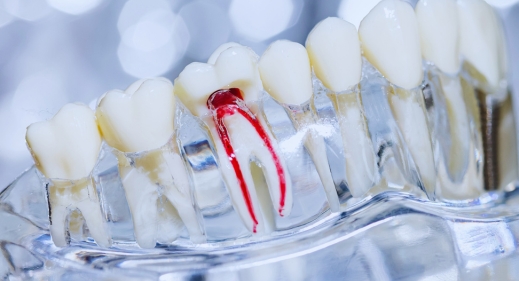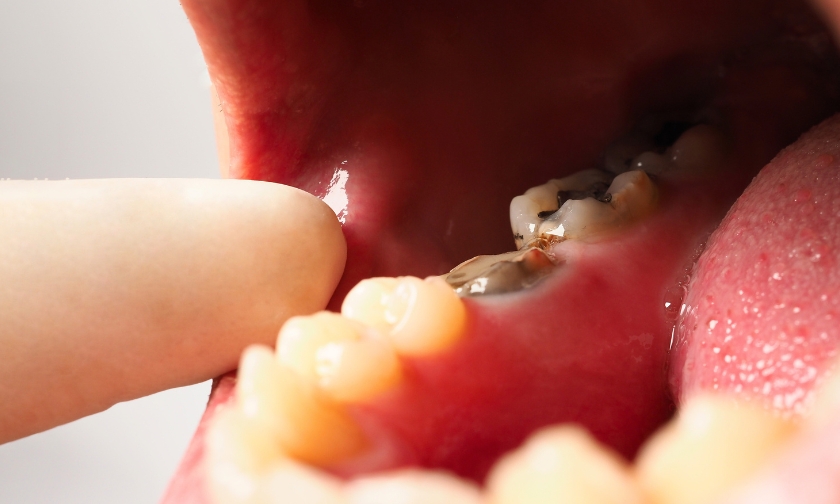943 Finchley Rd, London NW11 7PE
How Long Does It Take To Recover After A Root Canal Treatment?

A dull throb. Then, a sharp sting. Then, a sleepless night was spent Googling, “Is it too late to save my tooth?” Sound familiar? That’s often how the journey to a root canal starts. The treatment might sound intimidating, but it’s the procedure that saves your natural tooth, without the need for extraction. Yet, for most patients, the real question comes after: How long does it take to recover after a root canal treatment?
Honesty? It’s not the same for everyone. Recovery depends on the complexity of the procedure, the health of the tooth, and your body’s healing ability. But what most specialists fail to inform you of is that how you take care of your tooth in the days and hours following the procedure has a huge impact on how quickly you feel normal again.
Let’s walk this through with medically precise, real-world advice—no fluff, false hope, or generic tips.
What to Expect After a Root Canal?
After the infected pulp is extracted, the canal is cleaned and filled. This prevents further infection. But here’s where healing begins.
Patients tend to think the tooth is “fixed” right after the procedure. But although pain is almost instantly relieved, full recovery takes time.
Here’s what occurs after treatment:
- Mild inflammation around the treated tooth is common.
- You might experience a dull ache or pressure sensation upon biting down for a few days.
- The treated area starts reuniting with adjacent tissues and bone.
This healing process isn’t universal. But most healthy adults begin to feel themselves again in 3 to 7 days.
How Long Does Root Canal Recovery Take?
If your root canal procedure was a standard case and you comply with aftercare guidelines, pain tends to subside within a week. However, some teeth—such as molars with several canals—take longer to adjust.
Determinants of recovery time:
- Whether the infection had extended beyond the root.
- Whether you required more than one appointment to finish treatment.
- How swollen the surrounding tissue was when the procedure was performed.
- Your body’s healing mechanism.
Most people in London are back to work the next day, especially if the tooth treated isn’t in a high-pressure bite zone. However, if you had a bad infection or prolonged treatment, it’s best to give it a couple of days before resuming routines such as gym sessions or hard food.
What You Might Not Expect—But Should Know
Although swelling, tenderness, and mild sensitivity are common, here are some less-spoken-about (but medically sound) recovery tidbits:
- Your bite may be a little “off” for a while. This isn’t because the procedure didn’t work—it’s usually caused by some slight inflammation or a very slight high filling. If it’s not temporary, your dentist can simply tweak it.
- Temporary fillings or crowns are not the destination. They’re only there to cover the tooth until the final crown is in place. Postponing for too long can cause recontamination.
- Sore jaw is inevitable. Particularly if your mouth was open for a long period. Warm compresses and gentle stretches will help.
How to Recover After a Root Canal Without Setbacks?
The secret is not post-op care—it’s pre-op care. What makes the difference is this:
- Do not chew on the treated area until the crown is inserted.
- Adhere to the prescribed or over-the-counter pain medicine as indicated, not only when pain occurs.
- Rinse with warm salt water if instructed to reduce inflammation.
- Do not neglect your follow-up—follow through on completing the treatment (typically with a crown) to prevent reinfection.
And yes, brushing and flossing should go on as usual, just carefully around the treated area.
When Should You Be Worried?
Not all pain is a red flag, but some signs need to be addressed:
- Persistent pain after more than 7–10 days.
- The swelling increases rather than decreases.
- A pimple on the gums (a potential sign of ongoing infection).
- Pain when tapping on the tooth weeks after surgery.
If you’re in London and feeling anything out of the ordinary after treatment, don’t hesitate to contact us. A simple trip to our dental clinic can eliminate complications and spare you discomfort later on.
The Bottom Line
An effective root canal saves your tooth’s structure and function. Recovery? For most people, it’s easy and manageable. But how fast and how easily you heal depends on two things—how the procedure was done and how you take care of your tooth afterwards.
You may feel a little discomfort for a few days, particularly when you chew or bite. But with proper care, you’ll forget the tooth ever caused you any problems.
Still not sure or need advice that’s customized to your dental past? Our clinical staff is available to walk you through each step—pressure-free and without judgment. Whether you’re dealing with post-treatment sensitivity or deciding on your next visit, your comfort and understanding are our top priority.
Schedule your follow-up today or talk to your dentist for recovery assistance that’s customized, informed, and centered on your well-being.





